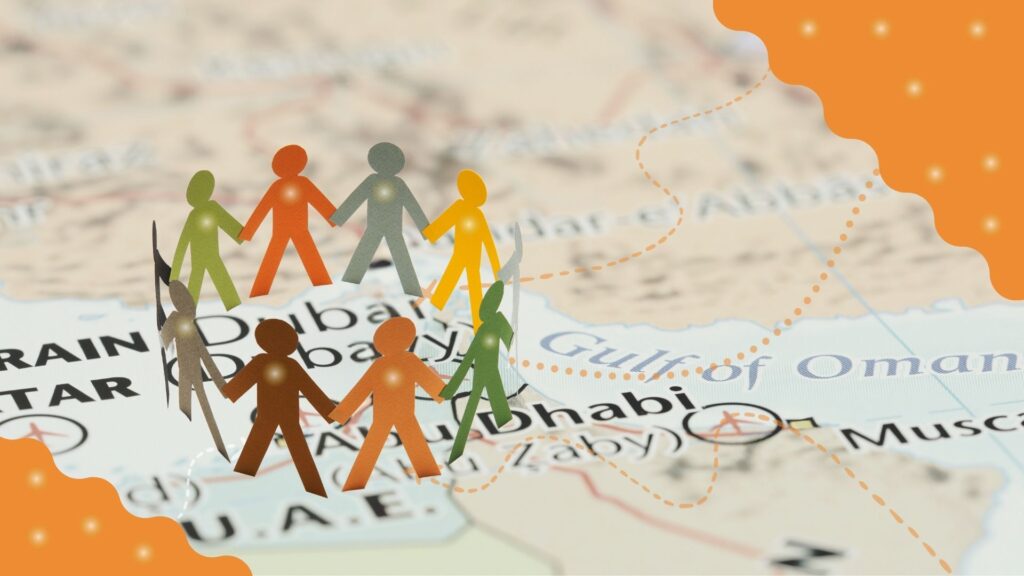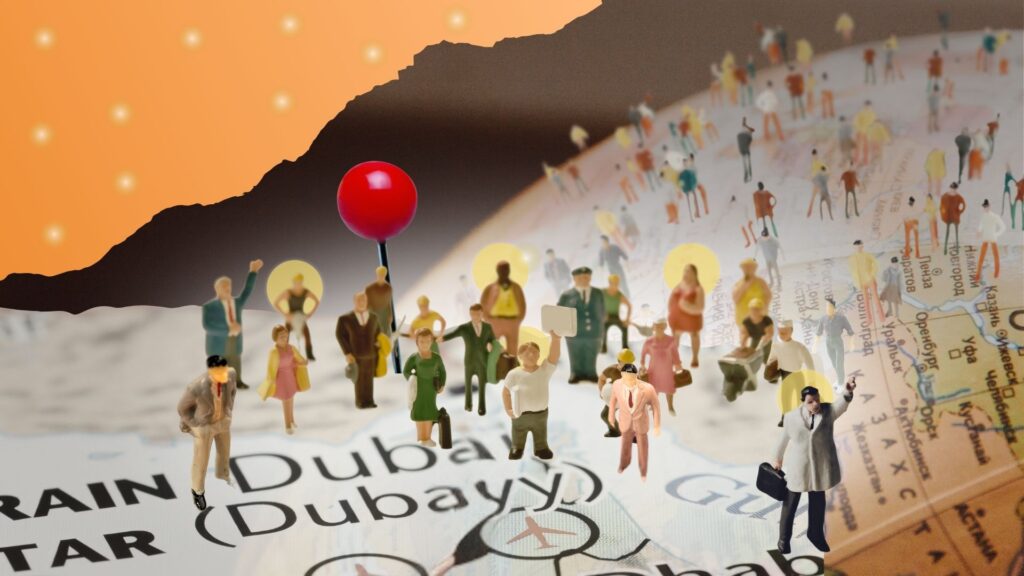In 2020, the global estimate of international migrants was 281 million, which equates to 3.6 percent of the global population.1 That number is estimated to have grown to 350 million in 2024, which means that the diaspora is now the third largest nation in the world, after China and India. With increased mobility, what opportunities are there for advancing the Great Commission? What does a sending church look like in the context of voluntary and involuntary migration of people around the world?
The diaspora is now the third largest nation in the world, after China and India.
Fellowship Dubai is an international church based in Dubai. The church was started 20 years ago with a humble vision of growing it to about 200 people and making it self-sufficient. God blew everyone’s expectations out of the water.
Dr Bill Koogler is one of the pastors at Fellowship Dubai. He says, ‘There are several excellent churches in Dubai. Our church meets in two hotels in the north and south of the city with over 120 passports represented. While the church services are in English, 96% of the church speaks a primary language other than English. We see people from the nations sent out to all the nations.’
A Sending Church

Dubai is comprised of about 90% expats and migrants, global nomads who are from everywhere, going everywhere.
‘And so we train people, knowing that we have very short amounts of time with them. If their work visa is three years long, we know that it takes about 18 months for the newness of life to wear off. And they’ve come searching for a better life, but then we get to tell them about eternal life and help them have that mindset shift from valuing a better life to valuing eternal life,’ Bill says.
‘So that gives us 18 more months for us to train them up to not only believe in Jesus, not only share their faith, but for them to also train and make disciples.’
With the diversity of nations present in their congregation, they strive to consider intercultural factors when they preach, teach, and train.
‘I think it would be a great disservice for me to tell someone that being a Jesus follower is to be an American Christian. And to be an American Christian, it looks like this. Now go to your home country and be an American Christian. That’s being culturally proud, and it’s not the way of Jesus.’
God is bringing the nations to cities like Dubai, Paris, London, Singapore, and Seoul, with corporations bearing the cost, to hear the good news of Jesus and then carry that message back to their home countries, to their own cultures and languages.
International churches face a much higher than average movement of people into and out of their churches than established local churches. People stay on average between two and three years at a church, which means that’s about the time they have to raise a really good leader; you trust them to oversee ministry, and then they leave.
Bill explains that there are two ways of looking at high transience in international churches, which is typical of thousands of international churches around the world. The church can have a mindset of ‘that person went away’, or they can have the mindset of ’we sent them away’. The transition from ‘went’ to ‘sent’ is really important. Now they look at it as the power of the international church movement, which is to send people all over the world.
There are other international churches in Dubai that are part of the Missional International Church Network (MICN), which brings together about 400 international churches around the world. MICN is turning the idea of sending workers on its head owing to increased mobility of people, especially those from unreached people groups.
God is bringing the nations to cities like Dubai, Paris, London, Singapore, and Seoul, with corporations bearing the cost, to hear the good news of Jesus and then carry that message back to their home countries, to their own cultures and languages.
They are scattered all over the world for God’s glory.
‘It’s quite beautiful what God is doing with the scattered peoples of the world, because they go away for a little bit and then they come back home carrying the gospel. We have pictures of people baptizing other people in Europe. We have people sharing the gospel in open-air environments throughout Asia. We have people from countries that would be challenging to enter going back to their home countries and sharing the gospel. As people share the gospel in their home country or next country, they see fruit. One person who was with us for six months went home, shared the gospel and several people gave their lives to Jesus. Then he was asking, “What do I do next?” ‘ recounts Bill.
We have pictures of people baptizing other people in Europe. We have people sharing the gospel in open-air environments throughout Asia. We have people from countries that would be challenging to enter going back to their home countries and sharing the gospel.
‘Every single week at our church, when we share the good news of Jesus, someone comes up afterwards and says, “I have never heard that before in my life. Are you, are you for sure this is true?” It’s beautiful and refreshing. Those are people that God has sent.’
Gospel Presentation in a Cross-cultural Context

Living internationally and ministering among 120 different nationalities has opened Bill’s eyes to the robustness of the good news of Jesus.
‘When we share the gospel at our church, we want to make sure that we talk about the three colors of worldview. Think of culture as viewing the world through three lenses of varying strengths. We want to share the gospel with an understanding of innocence/guilt, power/fear and honor/shame cultural distinctives. It’s not only important, but it’s actually vital to be able to share how Jesus is good news for the whole world.’
‘We want to make sure, first of all, that what we disciple our people in is what God has already said. So everything is rooted in the Scripture. And we see it as a color palette that has a whole bunch of colors in it. What I want to do is not just paint the picture of Jesus in the colors of my cultural worldview, but to paint Jesus in the beautiful colors of whatever is best for particular cultures.’
The goal at Fellowship Dubai is to train their people to be able to share the good news of Jesus in different ways, so that somebody from Kenya can share the gospel with someone from Japan and train that person in Japan to share the gospel with someone from India. That requires strong intercultural awareness.
Conclusion
More people are traveling around the world, and more people are living abroad. It’s an opportunity for international churches to mobilize this massive population to participate in God’s rescue plan as people from here to there and everywhere.

